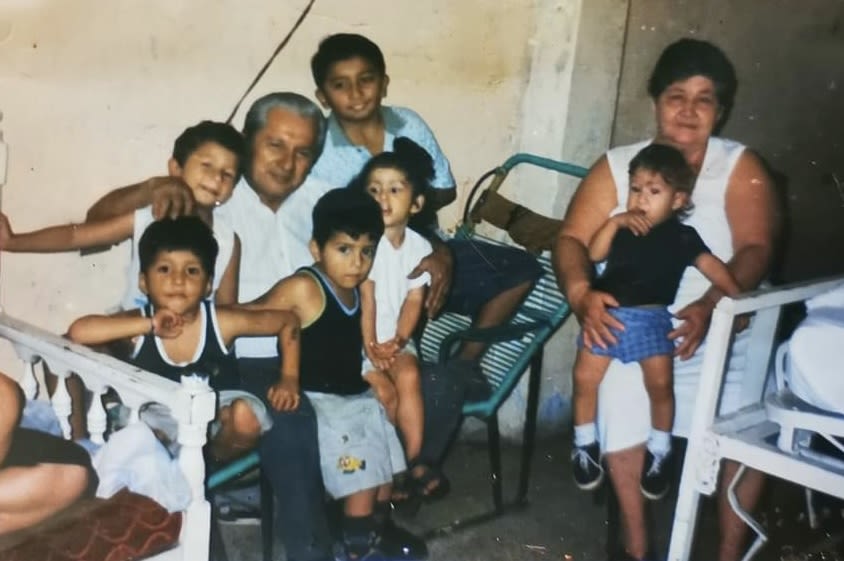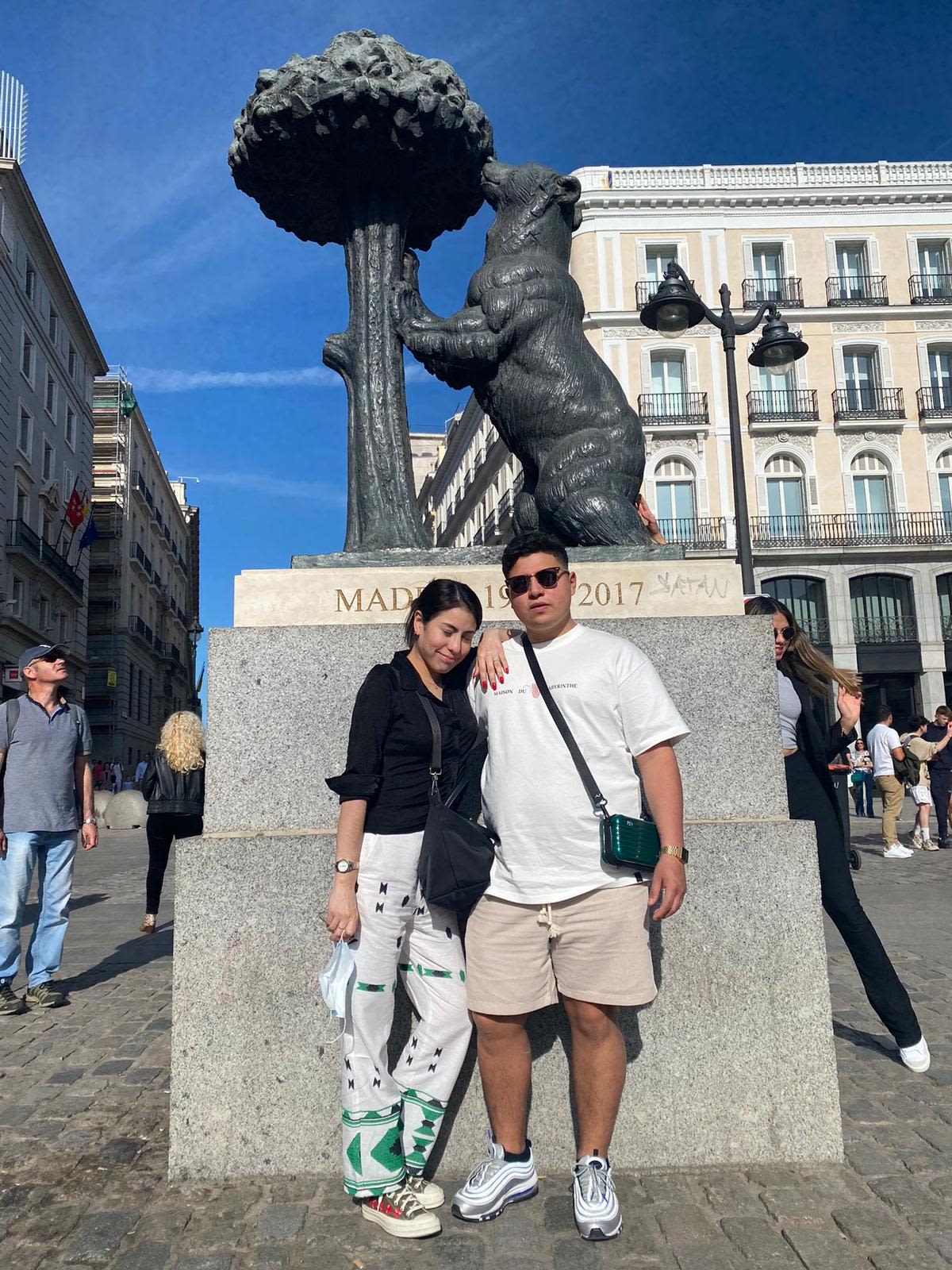Fitting in in Madrid
Meet Esteban, an Ecuadorian and a madrileño

Esteban Sebastián Minda Viera vividly remembers his first day in Spain. “It was very cold, 10 degrees Celsius. And I had never experienced less than 20. It was a severe shock. I remember we went to a shopping mall to buy jackets because I only had one and it was very light.” Esteban moved from his hometown Guayaquil in Ecuador, a coastal town with a tropical climate, where the record low temperature is 16 degrees and the average year-round is 26.
“I came in the afternoon, and I was surprised to see everything empty because of the siesta. I came at 2 pm and until 5 pm there were no people in the streets,” he recalls. That afternoon was 15 years ago. He was 10 years old when he was finally reunited with his mother after 5 years of living separated – he was in Ecuador and she was in Spain.
“There was a very bad economic crisis in my country, and it left it very poor. Most people couldn’t find a job. A cousin of my mom’s had moved to Spain and because she had family here, she told my mom to come for a few years and build a home. And my mom came.
The person taking care of me was my grandma, but she passed away. My dad and my mom were separated. So, when he started looking after me, my mother didn’t like his approach, and one day she told me, you’re coming with me to Spain.”
He says moving to a different country wasn’t difficult. He was excited to go on a plane and felt like he was going on vacation. Once in Madrid, he met other people from his country and felt “quote-unquote integrated”. In his primary school, there was only one Spaniard – everyone else was from Morocco, Bolivia, Colombia, or Ecuador. After school, he would play with the other kids in the neighborhood or go to the nearby park. With time, he got to know more and more Spaniards. “I always knew how to fit in anywhere,” he says.
Culture Shock

Apart from the cold, there were other things about Spain that surprised Esteban. “It shocked me when I heard someone blowing their nose in the subway. In Ecuador, this is a disgusting mess. Or when people greet the bus driver. They say ‘hello’ to him, ‘what a great day, how are you doing?’ and for me in Ecuador greeting a person meant I already knew them. I mean, you could say ‘good afternoon’ but asking someone what’s up – that’s only when you’re on close terms. And this whole thing about using tú [informal “you”] with people who are older than you, in Ecuador is a big no-no.”
It turns out that this egalitarianism is one of the things Esteban likes about Spain. “Here a person might have a doctor’s degree and won’t look down on you. And in Ecuador, they put their ‘Ph.D.’ and force you to respect them because of it. I don’t like it at all.”
He says this is one of the biggest differences between his hometown and Madrid. “When I was in Ecuador, my cousins had friends from the upper class. They look down on you, judge you, for how you´re dressed, for this, that, and the other thing. Meanwhile, I’m from a lower class and I always have been. Of course, here my mother could just about make ends meet. But my friends have never shown that they had more money than me. This is what I like about Madrid, that the people from the neighborhood, no matter how much money they have, never trample on you. You’re just another kid.”
El Madrileño

Of course, there are some things from Ecuador that he misses. Like the taste of food. “The fruit is sweeter there. It has more of a flavor. The tomatoes don’t have the same texture. They may come from there, but they don’t have the same taste. There are many shops with Latino products, but they’re not fresh. Oh well, you do what you can,” he says with a sigh. At home he eats Latino, but he also likes Spanish food. And he says the Spanish Coca-Cola tastes better.
Culinary qualities aside, Esteban is not too fond of his native country. He says there are few job opportunities and crime rates are incredibly high. “The minimum salary does not cover your basic needs. The health service is not good. Well, the private yes. Like everywhere else, if you have money, you can do fine. But in Ecuador the difference between rich and poor is huge.”
When I ask him if he feels Spanish, he automatically replies, “no.” Then he takes a second to think about it. “Let’s see.
I consider myself neither from here nor from there. I’m in limbo.
But I’ve read a lot about this and let’s say I consider myself madrileño. Instead of a Spaniard as such, you know, the ‘Viva España’ paella-eating one, no. I have a great love for Madrid, I wouldn’t change it for anything.”
He says Madrid is his favorite city, mostly because of all the opportunities he got there. But also because of the people he met. “I like this about Madrid, that you get to know people from all over the world.” Yet, he says it is obvious that he was not born there. “If you listen to me talk, a madrileño will know that I haven’t lived here. They say my accent is like an Italian speaking English – a mixture of the two. If I speak with Spaniards, it goes more in that direction, and if I speak with Latinos, it goes in the other direction. But it doesn’t change much. In the center, a bit to the right and a bit to the left.”
Esteban Now

In between memes about reggaeton artists and photos of his cat, I notice a photo with his now fiancée. In February, he took her on a trip to Paris and finally proposed. Today they’re celebrating together with his future mother-in-law his 25th birthday.
Almost 6 years have passed since he last visited his family back in Ecuador. After he left, he only returned twice – when he was 18 and when he was 19 years old. Yet, he manages to stay on track with what is happening there. He says he talks to his family, virtually all members of which are there, and he also gets informed through social media.
His Ecuadorian passport and ID card expired a while ago and he hasn’t bothered to renew them. “It’s useless. You only need it for Ecuador. If you have a double nationality, they ask to see both of your passports.” This is why he’s not planning to go back to Ecuador anytime soon. “I prefer to travel around Europe,” he says with a smile.
This article is part of the Second-Generation Spaniards: A Collection of Stories project.
It was created as a Journalism and Mass Communication Capstone Project at the American University in Bulgaria. The academic supervisor is Professor Laura Kelly.

